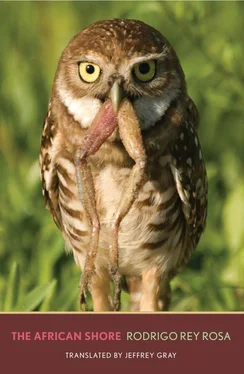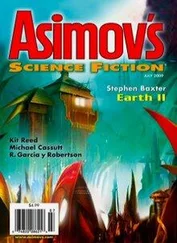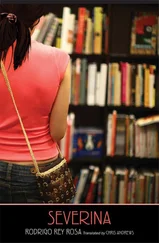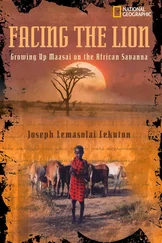If he bothered to keep the plaque on the door and to read and answer official letters, it was only because the title agreed with him, and he didn’t mind receiving a visit from time to time.
“Especially from a nice-looking, civilized person like yourself,” he added, to make his inclinations obvious. “So let’s hope you enjoy your life here. Come to see me when you like.” The consul held out a damp hand.
At the end of the street, on the sidewalk across from the herbalist’s, he saw a ragged boy with a two-handled basket trying to sell a barn owl.
He stopped and leaned over the basket to examine it. The owl said “chi chichich.” Its big black eyes, circled with ochre disks, looked straight ahead. Its old woman’s face was framed by a halo of small feathers. It moved its head constantly, following the slightest movement around it.
“Can I touch it?” he asked, thinking the boy wouldn’t understand.
“Touch it, touch it,” the boy said.
He put out his hand and touched its head. The owl shut its eyes, as if in resignation. “Chi, chichich.” He touched the tawny wings, with their thick, soft plumage, and noted the tear-shaped stains that adorned its back. He straightened up and looked at the boy.
“How much?” he asked.
“Mía dirham,” the boy said.
“I don’t understand.”
“Cento, cento.”
He smiled.
“Here’s fifty.” He counted to fifty with both hands, as children do.
The boy stared a moment at the herbalist’s shop, scratched his head, and finally, putting out his dirty, eager hand, said:
“Ara hamsín.”
The boy pocketed the money and lifted up the owl, whose well-feathered legs were tied with a piece of rope. The man took it in both hands. He said, “Easy now, precious,” adjusting it against his chest and holding it firmly. He set out up the street, now crowded with people and suddenly seeming much noisier than ever.
In his room at the Atlas, he untied the owl’s feet and set it on a little dressing table. It fluttered its wings listlessly. Then it hopped up and perched on the back of an armchair; fastening its claws, it shook its head once and fixed its large eyes on its new owner. “To inspect me,” he thought to himself. It spread its wide, rounded wings and produced the sound “kiúk,” twice. He crossed the room, from the dressing table toward the balcony door, the owl following him with its eyes, turning its head. He drew the curtains, and the owl blinked. When he sat down on the bed, the owl’s eyes followed him with another revolution of its head and remained fixed on him. He took off his shoes to lie back and sleep; the owl observed his movements with tiny oscillations of its head.
He woke up with a slight weight on one shoulder, his face buried in the down pillow. He turned slowly and saw the owl’s face, examining him with almost human curiosity. “Hello, beautiful,” he said. He lay face up, and the bird leaped and perched on his hip. It opened its white, arched beak, closed it, and opened it again. “Yes, precious, we’re going to look for something for you to eat.” He shifted, and the owl flew over and perched on the back of the armchair again. He put his shoes on quickly and stood up. “I’ll be right back,” he said.
It was almost midnight. The doorman, sleeping in an easy chair in the lobby, got up with a jerk and drew back the bolt of the door to let him out.
“M’salkheir,” he said.
At this time of night, the city seemed less Mediterranean than Asian, with its food stalls and stores flooded with sickly neon light. The street smelled of diesel and burned meat. The cats, almost invisible by day in this part of the city, where they were harassed by the Moroccans, took over the sidewalks by night and were left alone (“because nobody in his right mind would ever strike a cat in darkness”).
“Become who you really are,” said a display for Lacoste in a window on the Boulevard Pasteur. On the other side, a glowing Wimpy’s sign shone on the sidewalk. He crossed the street, the empty taxis cruising slowly, and went into a small Muslim diner.
“Kefta?” he asked, looking at the display window, where there were two large pewter plates each bearing a mound of ground beef, surrounded by cans of Jus d’or and Fanta, each can topped with a red tomato.
“Spanish?”
“Yes. Some ground beef. Raw, please.”
“How much?”
“Half a kilo.”
The Moroccan took a piece of red meat, weighed it on a marble table, and cut it into several pieces, which he inserted into the grinder. Then he wrapped the mass in a sheet of paper, put it into a plastic bag, and set it on the imitation marble counter.
“Báraca l-láh u fik.”
“B’saha.”
Back in the hotel, he opened the package on the dressing table, and saw with dismay that bits of coriander or parsley had been mixed in with the meat. He took a bit of meat in his fingers, made a little ball, rolling it on the palm of his hand, and approached the owl. It had left the back of the chair to perch on one of the tin wall-lamps at the head of the bed.
“All right,” he said, shooing it, “get down from there. It’s time to eat.”
The owl flew back to the armchair. When he drew close with the meat, it opened its beak greedily and swallowed the meat with no difficulty. It opened its beak again, asking for more.
“Well, then,” he said to the owl, after it had devoured almost all of the meat, “now it’s my turn.” He went to the bathroom to wash his hands, then headed for the street in search of a restaurant.
When he returned, the owl was again perched on the wall-lamp over the bed. There was a greenish white puddle on one of the pillows.
“Oh, no.” He threw up his arms in anger. “Get out of there!”
The owl opened its beak and spread its wings defiantly. Then it flew back to the armchair, raised its short tail, and let fall a stream of greenish liquid onto the Berber rug.
“Oh, this is a great start.”
He rolled up his sleeves and began to pull off the pillowcases.
The owl hooted.
Leaving the room in disorder — the pillowcase balled up in a corner, the half-washed rug spread out on the balcony — and the owl locked up in the bathroom, he went out for breakfast. On the broad white terrace of the Café Ziryab with its little plastic tables — from which he could see in the distance the Djebel Musa, the pale pillar of Hercules collapsed on the African shore — the sun had flooded everything in orange light. He took off his sunglasses and sat contemplating the scene — a white boat moved off toward Gibraltar, leaving a wide, creamy wake. For the moment, he was satisfied and happy.
Before going back to the hotel, he walked down to the Zoco de Fuera, which was bustling with activity. At the market entrance, women from the country in wide-brimmed hats were selling fresh cottage cheese and big loaves of bread. Inside the market, he could smell flowers, milk, and fresh meat. He approached a butcher’s stand and asked for chicken guts; he watched a man with a long knife at the neighboring stand strip all the meat but the eyes from a goat’s head. Farther on, in front of a flower stand, someone was selling birdcages. He decided a cage was a good idea.
He was waiting for the elevator in the Atlas, which came down humming amid clangs of chains and gears, when the porter, Abdelkhay, gave him two vigorous slaps — too vigorous, he thought — on the shoulder.
Abdelkhay smiled, but it was not a friendly smile.
“Señor,” he said, “no animals. You have an animal. You have to go. Understand?”
“How’s that?”
Читать дальше












